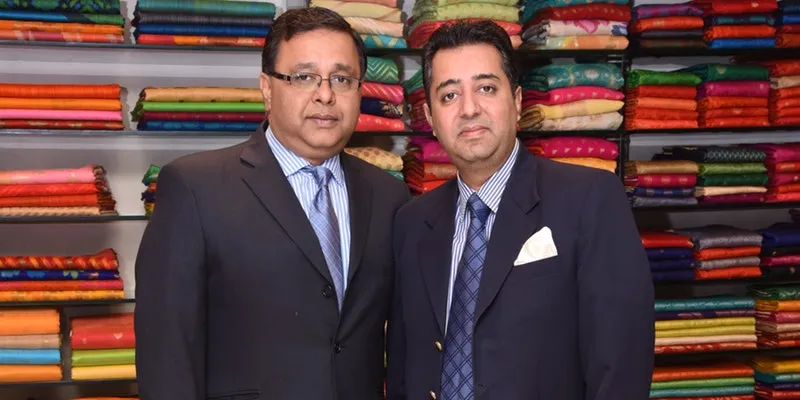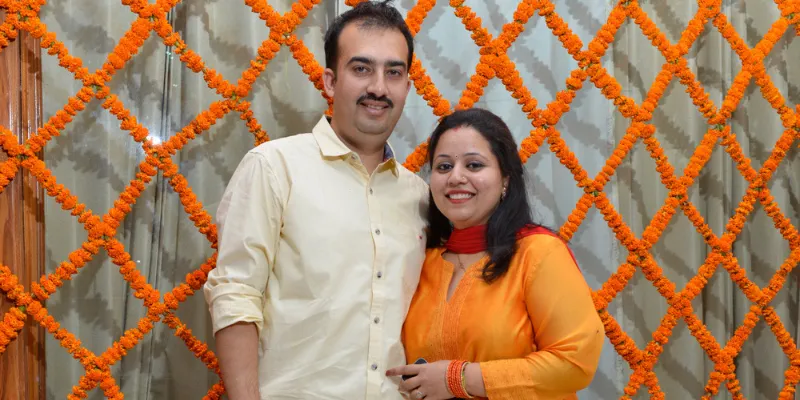5 Indian saree brands that are popularising traditional designs from across states
India’s saree story continues, and SMBStory has curated a list of five Indian brands that are popularising traditional and regional sarees across the country.
The saree had never really gone away, but Draupadi's 'unending fabric of time' has made a strong revival in the last few years.
In 2009, Kolkata-based Sabyasachi Mukherjee, one of the most successful designers out of India, launched a 'Save the Sari' project. The garment has come a long way since then with the extremely popular #100saripact making it a must-wear, and the numerous Facebook groups, including For the Love of Sari, Sadee Sari, and The Magic of Saris, deepening interest.
According to Statista, the saree segment has a market value of Rs 400 billion, and spans numerous varieties such as Banarasi, Kanjivaram, Paithani, Bandhani, and more.
SMBStory has curated a list of five Indian brands that are popularising local designs from the nooks and corners of the country and supporting local artists.
Greenways

Akshay Jain and Mayank Jain, Managing Partners at Greenways
Most Indian brands vie for a coveted spot in this market, but Greenways staked claim to Connaught Place in the pre-Independence era. What began as a wool knitting shop launched by AC Jain and his two brothers in 1942 has now transformed into a 1,400 sq ft store with a wide range of women’s ethnic wear.
Greenways offers a wide variety of women’s ethnic wear designs, sourced from different parts of the country, including Gujarat, Andhra Pradesh, Telangana, Karnataka, and Tamil Nadu. These include weaves such as Banarasi, Paithani, Kanjivaram, and Bandhani, which draw inspiration from India’s textile heritage. All weaving and designing is done at the weaver’s facility.
Greenways has three stores in Delhi and also exports to Mauritius.
Odhni

Puneet Jain and Yatin Jain, Directors, Odhni
In 1999, keen to do something different from the existing family business after observing the gap in the Indian fashion market, Anju and Shashi launched Odhni, an ethnic wear brand for women.
Apart from sarees, Odhni manufactures and sells ethnic women garments, including suits, gowns, Indo-Western kurtis, and accessories.
The company manufactures some of its ranges by giving designs to weavers across Farukkabad, Mumbai, Surat, Kolkata, and others. All the ranges are outsourced. For example, the brand gets readymade and cotton sarees from Mumbai, Chikankari and Resham sarees from Bareilly, Bandhani and Patola sarees from Bhuj, silk from Coimbatore, Ikat from Surendranagar, etc.
Odhni aims to achieve a target of Rs 1,000 crore revenue by 2025, along with expanding to 30 stores across north India.
Suta

Love for sarees led sisters-turned-entrepreneurs Sujata and Taniya Biswas to quit their corporate jobs and embark on a magical journey of handloom with Suta, a house of handwoven sarees, sourced from villages across India.
Born of passion, Suta’s journey hasn’t been without obstacles. After quitting their cushy corporate jobs, the sisters grappled with many ideas and even tried their hands at product photoshoots, before realising that their true potential was not in the pictures but in the products itself.
“We had designed a few clothes and posted them, but instead of getting requests for shoots, we were asked about the products,” Sujata says.
What followed next was a quick pivot, and a hunt for the right fabric and skilled weavers across the nooks and crannies of rural India. The search, Sujata and Taniya explained, took them to remote villages of Madhya Pradesh; Meghalaya; the home of Banarasi sarees Varanasi; Maniabandha in Odisha; the district of Kutch in Gujarat; and West Bengal (where they currently have their two offices in Shantipur, in Nadia district, and Dhaniakhali).
Suta has since grown by leaps and bounds. Its handloom sarees, in varieties of jamdani weave, malmal, malkesh, Banarasi, and fully handwoven pieces, are now shipped across the country and to international markets.
Kankatala

Anirudh Kankatala, Director, Kankatala Textiles
In the 1930s, Kankatala Appalaraju started working in a small cloth shop after dropping out of school. He also sold clothes to the British at Vizag Railway Station. In 1941, he would carry silk sarees on his bicycle and sell them door to door.
When he started finding a few takers, he decided to expand his venture and launched a store in Visakhapatnam in 1943.
Around 78 years later, Kankatala Textiles Pvt Ltd has grown to 11 outlets in South India. Last year, it sold 5,000 sarees online. Anirudh Kankatala, third-generation entrepreneur and Director of the company, claims that the business sells 25,000 sarees a month through its stores.
Kankatala has tied up with 40 weaving clusters across 15 Indian states, including in villages across West Bengal, Varanasi, and Kanchipuram.
The brand offers a vast variety of sarees, including Chanderi, handspun cotton, Eri silk, georgette, Gadwal, Kanchipuram etc. It has diversified into other categories such as half-sarees and dupattas as well. The sarees are predominantly made using handlooms, with a few woven on jacquard or power looms.
Bharatsthali

Pulkit Gogna and Sumit Gogna, Co-founders, Bharatsthali
Leaving their well-established family business, Sumati and Pulkit Gogna started Bharatsthali.com in late 2017 with a capital of Rs 40 lakhs to revive pure silk and Kanjivaram sarees.
Realising the huge potential of the Indian handloom industry, the husband-wife duo started this venture to let people reacquaint themselves with traditions.
The Chandigarh-based business is a fair trade marketplace for sarees, and sources them directly from artists and artisanal communities.
From Kanchipuram suburbs for Kanjivaram sarees to Pollachi in Coimbatore for Pollachi sarees, the couple also travels to Bhagalpur and Madhubani in Bihar and Banaras for Banarasi sarees.
Bharatsthali silk sarees come with the Silk Mark India label, the benchmark of natural and authentic silk, and an important quality assurance checkpoint that comes handy when you plan to keep a heritage Banarasi or Kanjivaram saree for posterity.
The company also delivers to various countries, including Canada, the UK, and Malaysia.
Edited by Teja Lele









